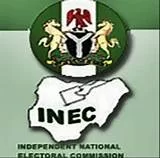
ELECTORAL ACT AMENDMENT: NIGERIANS REJECT REPS PROPOSAL FOR COMPULSORY VOTING
A cross section of Nigerians, including lawyers and civil society organisations have opposed a bill in the House of Representatives seeking to amend the Electoral Act 2022, to make voting in all national, state and local council elections compulsory for all eligible Nigerians.
The bill, jointly sponsored by Speaker Abbas Tajudeen and Daniel Asama Ago, is titled: A Bill for an Act to Amend the Electoral Act, 2022 to make it Mandatory for Nigerians of Maturity Age to Vote in All National and State Elections and for Related Matters (HB.1930).
The bill proposes a six-month imprisonment or a fine of not more than N100, 000 for any registered voter convicted for failing to exercise his or her franchise during national, state and local council polls.
But Nigerians who spoke to Daily Trust described the proposed legislation as a misplacement of priority; while lawyers declared it unconstitutional.
Tunde Akinyemi, a civil rights lawyer in Surulere, Lagos, said: “This bill is not only draconian, it is tone-deaf. You don’t threaten citizens into participating in democracy; you inspire and earn their trust. Has the government considered the reasons why people don’t vote? Fix electoral violence, rigging and insecurity first, and then we can talk about turnout.”
On her part, Hajiya Rabi Abdullahi, a school teacher from Keffi, Nasarawa State, said people avoid taking part in election for their safety and other reasons.
Chukwuemeka Obi, an unemployed graduate from Enugu, said, “Many of us have lost faith in politicians. They come every four years with promises and disappear after winning. If I choose not to vote, that’s my right too. Compelling people with jail is dictatorship, not democracy.”
An elder from Maiduguri, Bulama Gubio said, “We are still recovering from insurgency here. Many of our people are displaced and don’t even have voter cards. How can they be expected to vote? This kind of law ignores our reality.”
Ngozi Chukwuemeka, a youth corps member in Jos, said, “We spend hours under the sun during elections and the results are often manipulated. Now the National Assembly wants to punish us for not showing up? They should punish those who rig, not those who are tired of being deceived.”
Alhaji Sulaimon Adigun, a retired teacher said, “Voting should be a right, not a legal obligation with threat of jail. What about elderly people who can’t make it to polling stations or sick people at home? Or are we now in military era?”
Bassey Okon, a student activist in Calabar, said, “This bill is oppressive. Instead of blaming poor turnout on citizens, lawmakers should look inwards. Maybe if they were more accountable and transparent, people would actually want to vote.”
On his part, Aminu Naganye, a Kano-based journalist, said, “The law doesn’t make any sense to me since democracy is all about freedom, and the moment you say something is compulsory, you have tampered with the basic democratic provisions.”
However, in Benue State, some citizens said the proposed legislation has several benefits.
Tertsea Benga said it would increase voters’ turnout as a higher percentage of eligible citizens would be participating in the electoral process and improve accountability.
A political and public affairs analyst in Rivers State, Bassey Isangedighi, said if the bill is passed, it would encourage voters to come out on election day to discharge civil responsibility.
Alice Kabowei, from Bayelsa State, said the compulsory voting would help in advancing democracy in the country, as it would make it compulsory for every person on voting age to be committed to their civil responsibility.
Dons flay bill
Dr Sikiru Lanre Nurudeen, an associate professor of Political Science and Deputy Vice Chancellor at Al-Hikmah University, dismissed the proposal, saying it fails to address the root causes of voter apathy, particularly the widespread dissatisfaction with governance. He described the lawmakers’ move as a “layman’s approach to increasing voter participation,” and instead called for a thorough sanitisation of the voter register.
 Premium News
Premium News